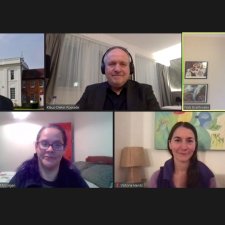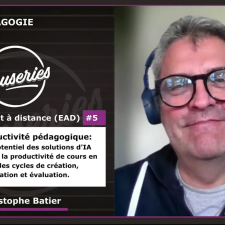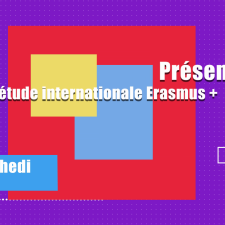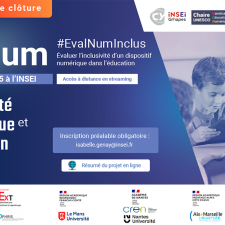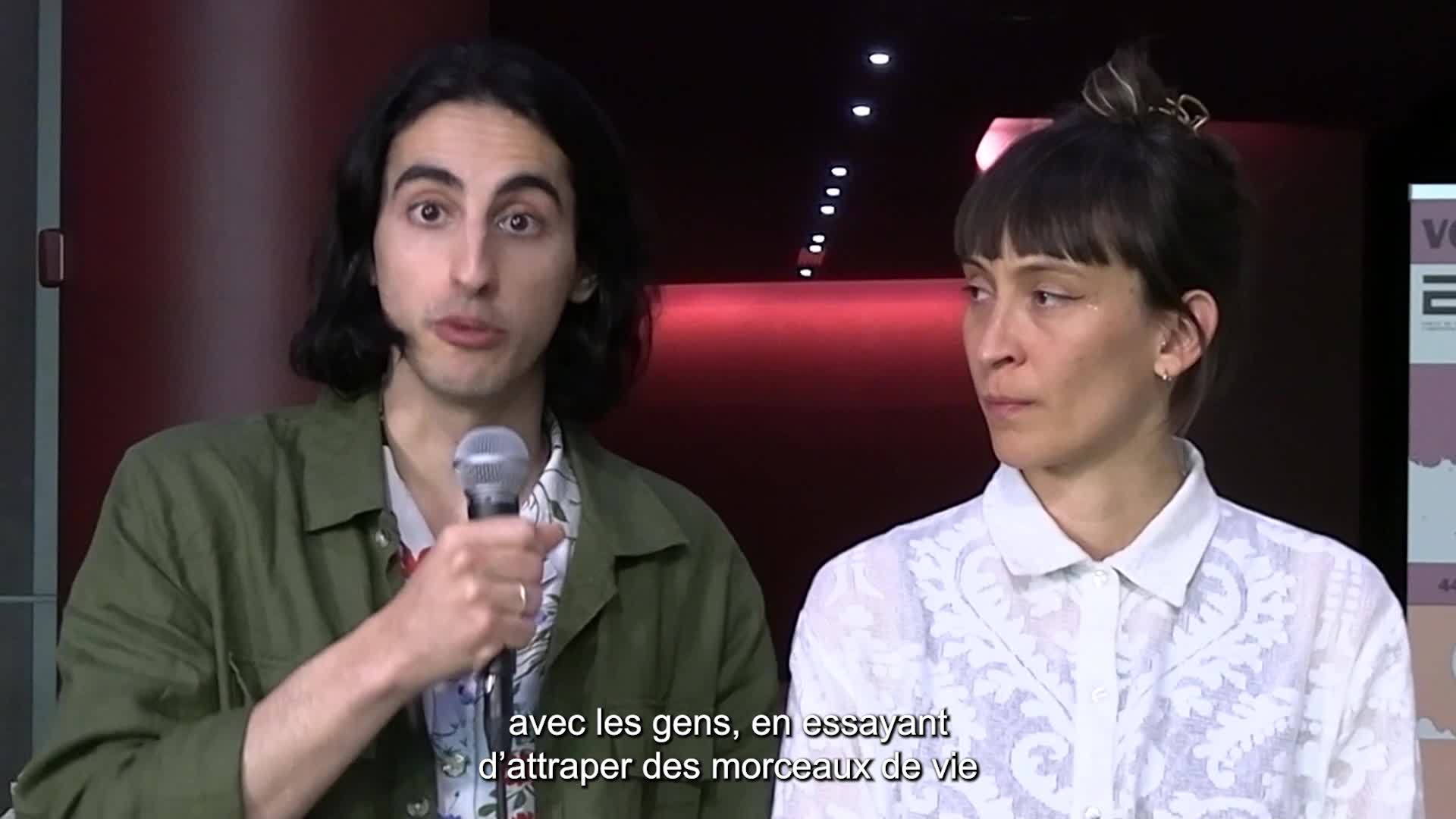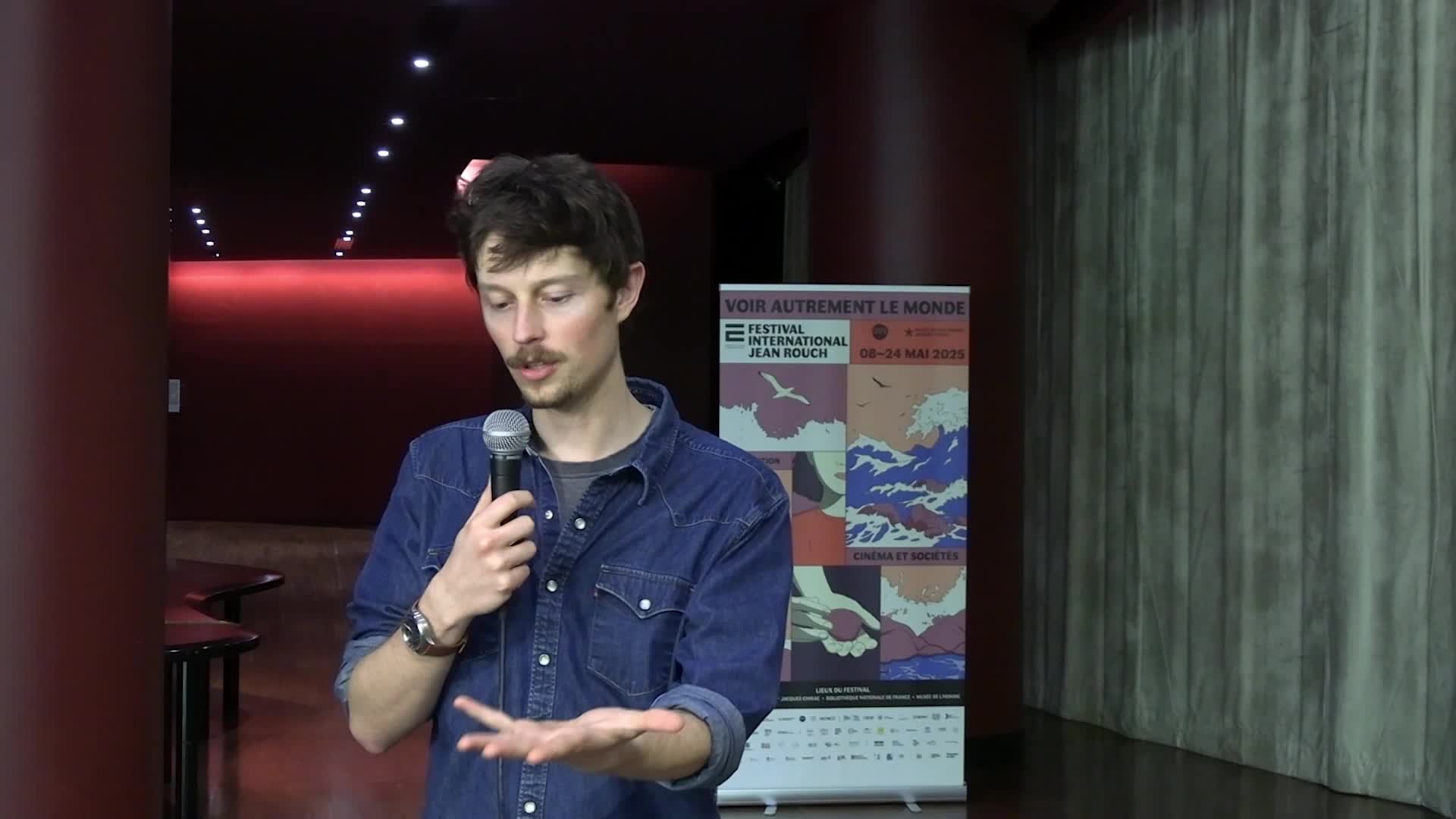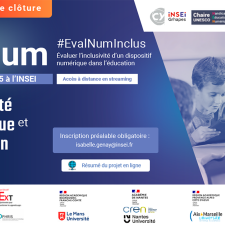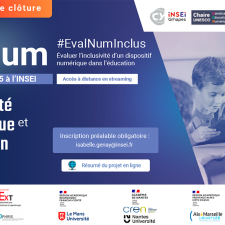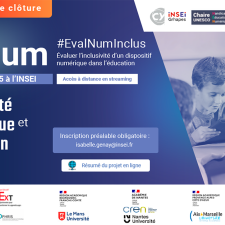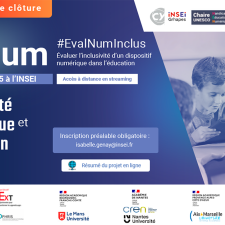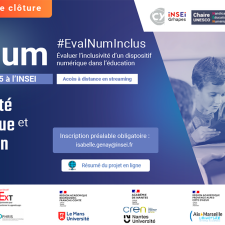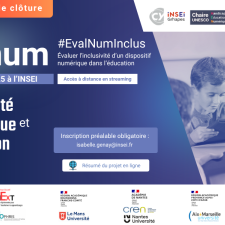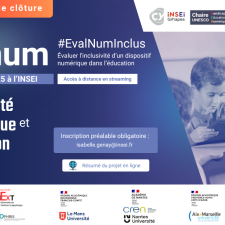Chapitres
Notice
Developments in distance education policies and strategies - 02 - English
- document 1 document 2 document 3
- niveau 1 niveau 2 niveau 3
Descriptif
A conference proposed and organised by Cned, DMS and The Open University.
Session chair : Prithvia SHRESTHA
Remaining ‘Open' during a crisis: managing academic continuity at The Open University, UK
Speakers : Helen COOKE, Klaus-Dieter ROSSADE
Co-author : Helen BARTON
Pandemic-induced assessment changes at the Open University UK
Speaker : Carlton WOOD
Building online learning communities within a China-UK partnership programme
Speakers : Stella BUNNAG, Stuart BURCH
Intervention / Responsable scientifique
Thème
Documentation
Remaining ‘Open' during a crisis: managing academic continuity at The Open University, UK
When the COVID-19 pandemic hit in early 2020, higher education institutions around the world faced an enormous amount of complexity and uncertainty, regardless of their mode of delivering teaching, learning and assessment activities to their students. Despite already having robust policies and processes in place for delivering such activities online, distance learning institutions around the world were far from being exempt from this disruption. Ensuring the continuity of academic quality and decision-making during a crisis affects all institutions and needs to be managed carefully in order to maintain the expected quality of academic standards and student experience, whilst protecting the health and wellbeing of students and staff. In this paper, we reflect on a model for ensuring academic continuity during crisis situations in universities, developed by Regehr and McCahan (2020), to evaluate the effectiveness of The Open University’s approach to managing academic continuity during the COVID-19 pandemic and consider longer-term implications for the institution. We also propose a simplified and modified version of the Regehr and McCahan model, taking into account the cyclical and ongoing nature of our considerations and the impact that prolonged uncertainty can have on applying such a model in practice.
Pandemic-induced assessment changes at the Open University UK
Here the timeline of the various examination assessment changes deployed by the OUUK during the period 2020-22 is shown. The main difference in this period being the introduction of online exams instead of the previously deployed face-to-face exams. We show a positive impact on student performance including increases in module pass rate and also module completion rate. We also report improvement in pass and completion rates for students with protected characteristics namely those with low prior educational qualifications, those with mental health issues, those from relatively poor backgrounds, Asian and Black students. We also show that there is a reduction in awarding gap between; black/white students, between those with mental health conditions and students with no reported mental health conditions and between students from the least affluent compared to the most affluent areas. A discussion of how the temporary changes could be made more permanent is surfaced, this being as a result of student demand but also as a result of demonstrable impact.
Building online learning communities within a China-UK partnership programme
This paper outlines the strategies used within an online foundation study skills course designed to build learning communities across borders in a UKChina Transnational Education (TNE) programme. It presents the fundamental aspects of “community” which include: bonding, inclusion, validation, student-centred learning, engagement and a sense of belonging. These are demonstrated through a case study of an ongoing partnership between Nottingham Trent University (NTU) and the Communication University of China (CUC). This collaboration has embedded “community” principles in three key areas: dynamic use of social media, specifically WeChat; an active social programme; and extensive online community-building through classwork activities. These are explained and evaluated using feedback from student interviews and survey responses. The transferrable findings help identify the core principles needed to build successful learning communities.
Dans la même collection
-
Évolutions des politiques et stratégies de la formation à distance - 01 - Francophone
MassouLucGravelleFranceMonetteJulieHouldPatrickAymeCatherineLa formation à distance, nouvel axe des politiques publiques. Choix stratégiques et politiques des établissements. Concours et coopérations nationales et internationales. Flexibilités
Avec les mêmes intervenants et intervenantes
-
Round table - Societal impact of distance education
BraithwaiteNicholasFraserJosieHandsVictoriaRossadeKlaus-DieterMcGuiganCinnomenSocietal impact of distance education
Sur le même thème
-
Causeries Pédagogie - Enseignement à distance #5 - IA et productivité pédagogique
PorlierChristopheBatierChristopheCauseries Pédagogie - Enseignement à distance #5 - IA et productivité pédagogique
-
Présentation du dossier journée Erasmus
Présentation du dossier en vidéo
-
- Le numérique au quotidien : pratiques et enjeux dans une classe soutenue par une ULIS-collège
AssudeTeresaFeuilladieuSylvianeBussezAlexandraMartinPerrineLe numérique au quotidien : pratiques et enjeux dans une classe soutenue par une ULIS-collège
-
Zsófia Paczolay et Dorian Rivière parlent de leur film "Je suis là"
PaczolayZsófiaRivièreDorianInterview de Zsófia Paczolay et Dorian Rivière pour leur film "Estou Aqui"/"Je suis là", en compétition à la 44ème édition du Festival International Jean Rouch en 2025.
-
Matthew Wolkow parle de son film "Eastern Anthems"
WolkowMatthewInterview de Matthew Wolkow pour son film co-réalisé avec Jean-Jacques Martinod "Eastern Anthems" en compétition à la 44ème édition du Festival International Jean Rouch en 2025.
-
Évaluer des usages du numérique à l'école primaire : un regard didactique sur des pratiques ordinai…
DupréFrédéricÉvaluer des usages du numérique à l'école primaire : un regard didactique sur des pratiques ordinaires
-
Usage du numérique dans une dynamique inclusive : impact d'une pratique coopérative sur l'accès aux…
Louge DupratMagalieUsage du numérique dans une dynamique inclusive : impact d'une pratique coopérative sur l'accès aux savoir.
-
Enjeux, principes et outils de l'observation in situ des usages pédagogiques inclusifs du numérique
BenoitHervéEnjeux, principes et outils de l'observation in situ des usages pédagogiques inclusifs du numérique
-
Le projet GTnum à l'échelle d'un territoire académique : témoignage de Julien Roche
RocheJulienLe projet GTnum à l'échelle d'un territoire académique : témoignage de Julien Roche
-
Un questionnaire académique pour donner à voir les pratiques numériques inclusives
DupréFrédéricBenoitHervéUn questionnaire académique pour donner à voir les pratiques numériques inclusives
-
Évaluer l'inclusivité d'un dispositif numérique dans l'éducation (GTnum) : état de l'art
Petry-GenayIsabelleBenoitHervéÉvaluer l'inclusivité d'un dispositif numérique dans l'éducation (GTnum) : état de l'art. Hervé Benoit et Isabelle Petry Genay, INSEI.
-
Ouverture de la journée GTnum#EvalNumInclus 2025
BenoitHervé"Évaluer l'inclusivité d'un dispositif numérique dans l'éducation"




